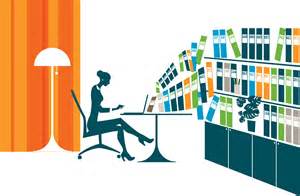Libraries provide great sources of information through the articles, records, and books that they contain. These items are all physical and are finite within a library’s complex. The problem with this is that there is a limitation placed on all of the readers who would like access to these sources at the same time.
Most schools have archives where they store historical records, documents and primary sources. Most of these sources of information cost schools a decent budget in order to be acquired, thus the limitation I explained earlier is further perpetuated.
In today’s modern era, digital archives seem to be the way of the future in terms of sharing and publishing information. Digital archives are virtual sources of information. Due to the fact that all of the information and sources are online, there is no limitation on the amount of readers that can view the source at the same time.
This type of storing information has developed into a community of intelectual engagement and stimulation. There are thousands of digital archives online. A feature of some digital archives is that these archives only contain works relating to a specific field. This means that some digital archives are mainly for art, sculptures, historical records, research or compositions.
Digital archives are great in terms of getting access to credible information quickly. A lot of these archives charge a monthly fee for having access to all of this information. Most of the published work on these sites are of high quality and paying this fee usually ends up with the reader having access to sources that were otherwise unavailable.
While not all of these online archives have a required payment, the ones that are paid for are most cited and credible. The online archives that are free to use allow almost anyone to become a publisher. The difference is that there is more flexibility in terms of the work or content of what is to be published, and even with this flexibility, the standard to which publishers are held in terms of the quality of their work is pretty much the same.
Instead of checking out books from the library when doing research or writing a paper, I turn to subscription based digital-archives in order to have access to credible information & the works of well known publishers. Thus, digital archives act as a digital library for readers without placing curtailments on those who want access to otherwise finite physical resources.
http://digitalarchive.wilsoncenter.org/
http://archivemati.ca/2005/11/08/digital-archives/
